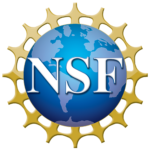Nininger Medical Awarded Competitive Grant from the National Science Foundation
Small Business Innovation Research Program Provides Seed Funding for R&D


Brea, CA – January 19, 2021– Nininger Medical, Inc. has been awarded a $256,000 National Science Foundation (NSF) Small Business Innovation Research (SBIR) Phase I grant to conduct research and development (R&D) work on a novel device for Transcatheter Tricuspid Valve Replacement (TTVR).
In the US, 1.6 million patients are in need of treatment for life-threatening tricuspid regurgitation (TR), but there is no good medical, surgical, or transcatheter therapy currently available. This project is developing technology that will enable valve leaflets ten times thinner than the material now used in most heart valve devices, allowing the device to be crimped into a smaller catheter, thereby enabling delivery in even the most challenging anatomy. This technology— which employs physical vapor deposition of a thin metal film to form 3-D valve leaflets— would enable a simplified method for valve manufacturing, potentially finding applicability in devices for mitral and aortic valves, as well as resulting in significant cost savings to the healthcare system.
“NSF is proud to support the technology of the future by thinking beyond incremental developments and funding the most creative, impactful ideas across all markets and areas of science and engineering,” said Andrea Belz, Division Director of the Division of Industrial Innovation and Partnerships at NSF. “With the support of our research funds, any deep technology startup or small business can guide basic science into meaningful solutions that address tremendous needs.”
Most heart valve devices today are made from animal-sourced pericardial tissue, which is relatively thick. Dr. Lowie Van Assche, Chief Medical Officer of Nininger, noted that, “One of the main challenges faced by the medical device industry in the development of a transcatheter tricuspid valve so far has been creating a design that can be compressed into a small enough catheter to deliver successfully. The use of thin film in this valve, rather than pericardium, will significantly reduce the volume of the valve material, thereby enabling a much smaller delivery catheter profile.” Daniel Anderson, CEO of Nininger Medical and Principal Investigator on this project, added, “Another downside of other valve designs using pericardium is that tissue requires many time-consuming and difficult processing steps, including hand-sewing under a microscope for several hours. The use of thin film leaflets will greatly simplify manufacture. The SBIR grant will fund critical developmental milestones such as verification of manufacturing feasibility and optimization of thin film leaflet characteristics, and we are grateful to the National Science Foundation for their support for this endeavor.”
Receipt of this Phase I SBIR grant also means that Nininger is now eligible to apply for a Phase II grant (up to $1,000,000). Small businesses with Phase II grants are eligible to receive up to $500,000 in additional matching funds with qualifying third-party investment or sales.
About Nininger Medical:
Daniel Anderson, P.E., and Dr. Lowie Van Assche, M.D., founded Nininger Medical, Inc. in 2019 to develop new devices for the treatment of unmet needs in structural heart disease. Nininger Medical is located in Brea, CA. https://www.niningermed.com
About the National Science Foundation’s Small Business Programs:
America’s Seed Fund powered by NSF awards $200 million annually to startups and small businesses, transforming scientific discovery into products and services with commercial and societal impact. Startups working across almost all areas of science and technology can receive up to $1.75 million to support research and development (R&D), helping de-risk technology for commercial success. America’s Seed Fund is congressionally mandated through the Small Business Innovation Research (SBIR) program. The NSF is an independent federal agency with a budget of about $8.1 billion that supports fundamental research and education across all fields of science and engineering.
Startups or entrepreneurs who submit a three-page Project Pitch will be notified within three weeks if they meet the program’s objectives to support innovative technologies that show promise of commercial and/or societal impact and involve a level of technical risk. Small businesses with innovative science and technology solutions and commercial potential are encouraged to apply. All proposals submitted to the NSF SBIR/STTR program, also known as America’s Seed Fund powered by NSF, undergo a rigorous merit-based review process. To learn more about America’s Seed Fund powered by NSF, visit: https://seedfund.nsf.gov/
Media Inquiries:
inquiries@niningermed.com
